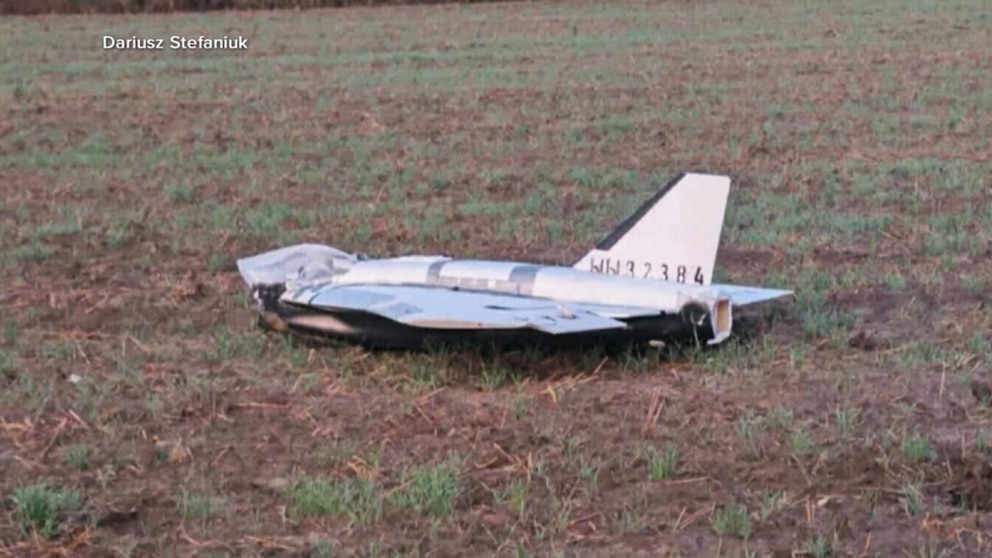Poland Vows to Defend Airspace Against Violations
On September 22, 2025, Poland vowed to shoot down any Russian aircraft or drones violating its airspace, escalating its response to repeated incursions amid rising NATO-Russia tensions.

Poland issued its starkest warning yet to Moscow on September 22, 2025, with Prime Minister Donald Tusk declaring that any Russian aircraft or drones violating Polish airspace would be shot down without hesitation. The announcement follows a series of recent airspace breaches by Russian military assets, including a major incident on September 10 when approximately 20 Russian drones entered Polish territory during a large-scale attack on Ukraine. Some of these drones were downed by Polish and NATO forces, marking the first time NATO aircraft participated in such an operation over Poland. The incident triggered an emergency government meeting in Warsaw and led Poland to invoke Article 4 of the North Atlantic Treaty, prompting NATO consultations and the launch of Operation Eastern Sentry, which saw the deployment of additional alliance forces to the region.
Escalating Incursions and NATO's Response
The latest Polish warning comes amid a pattern of Russian provocations across NATO’s eastern flank. Just days before Tusk’s statement, three Russian MiG-31 fighter jets reportedly violated Estonian airspace, remaining for 12 minutes without flight plans or transponder signals. Estonia, like Poland, summoned Russia’s envoy and called for an emergency UN Security Council meeting, underscoring the growing alarm among NATO’s frontline states. According to independent reporting by Meduza and TVP World, these incidents are part of a broader campaign of hybrid warfare by Russia, which has included cyberattacks, assassinations, and sabotage across Europe. NATO’s response has so far included increased air patrols, rapid deployment of fighter jets, and the reinforcement of air defense systems, but alliance officials acknowledge that deterrence is being tested as Russian denials persist and violations continue.
Polish and Allied Determination
Polish officials have made clear that the era of restraint is over. Foreign Minister Radoslaw Sikorski, addressing the UN Security Council, warned Moscow that any future incursions would be met with force, and that Russia should not expect sympathy if its aircraft or drones are destroyed over NATO territory. Sikorski accused Russia of escalating its hybrid war against the West and criticized Moscow’s refusal to acknowledge or apologize for repeated violations. The Polish government’s stance has been echoed by other regional leaders, including the Czech and Lithuanian prime ministers, who have called for a more robust NATO posture and cited Turkey’s 2015 downing of a Russian jet as a precedent for decisive action.
International Implications and Uncertain Deterrence
The repeated airspace violations have exposed divisions within NATO over how far to escalate in response to Russian provocations. While unmanned drones have been shot down with relative ease, alliance officials told Radio Free Europe/Radio Liberty that shooting down a manned Russian jet remains a far more consequential step, one that could risk direct confrontation. Nonetheless, the Polish government’s new policy signals a willingness to cross that threshold if necessary. The situation is further complicated by the current U.S. administration’s reluctance to impose significant consequences on Russia, a stance that some analysts argue has emboldened Moscow. As NATO’s North Atlantic Council prepares to meet on September 23 to discuss the latest incidents, the credibility of the alliance’s deterrence is under scrutiny, with many observers warning that words alone may no longer suffice to prevent further escalation.
Poland’s vow to defend its airspace marks a significant escalation in the ongoing standoff between NATO and Russia, raising the stakes for any future violations and putting the alliance’s resolve to the test. With tensions at their highest in years, the next incursion could force a decisive and potentially dangerous response.